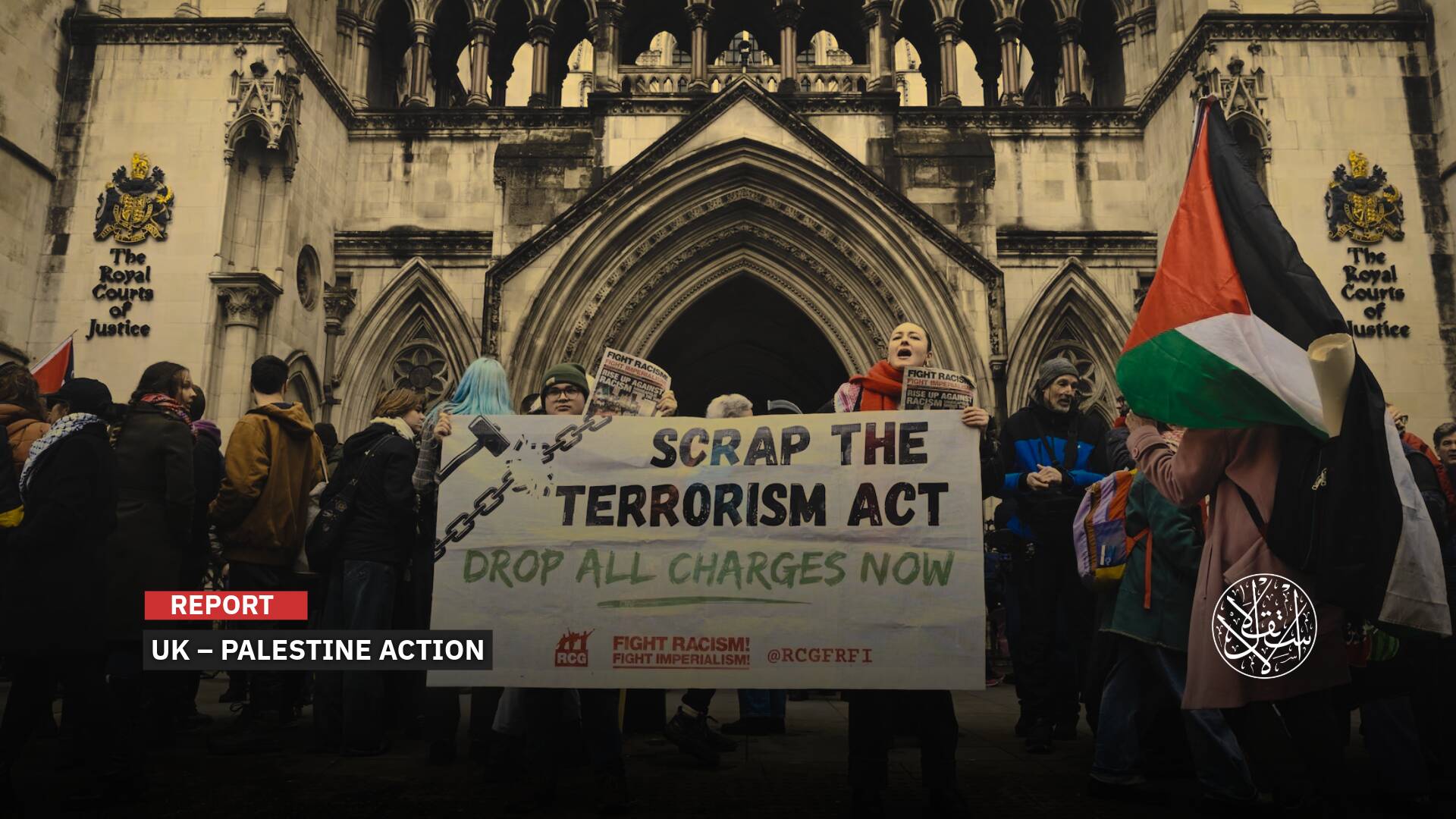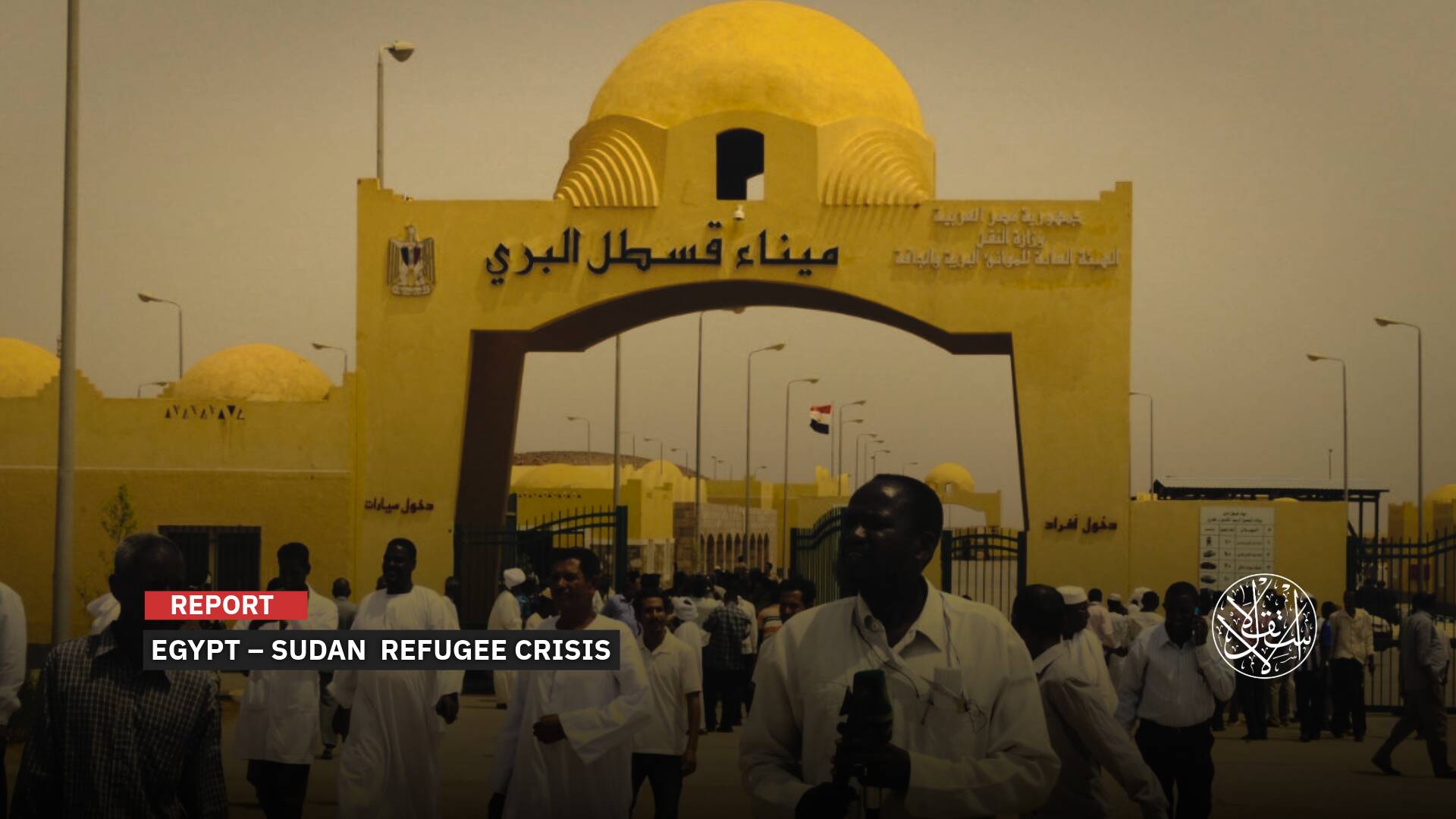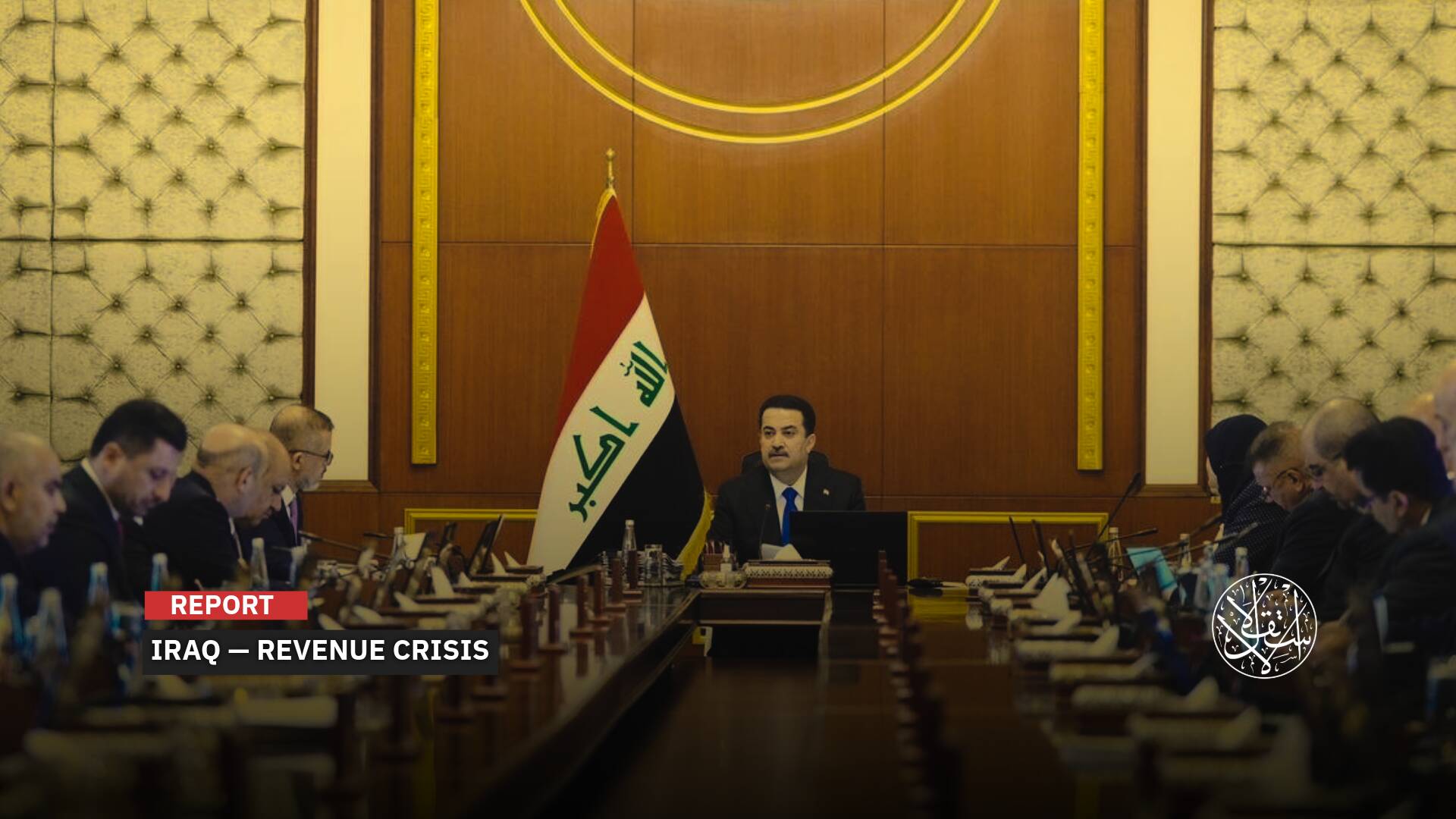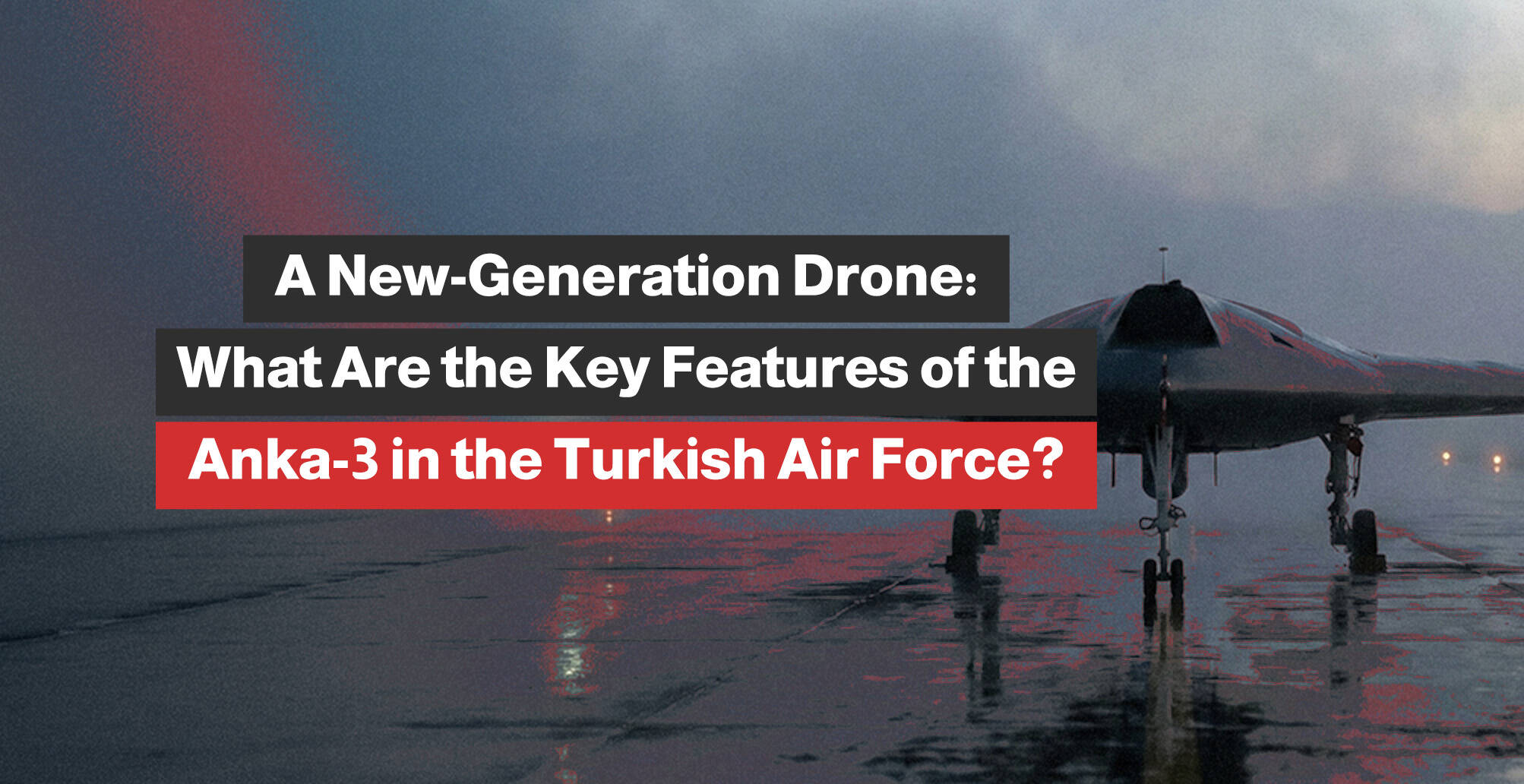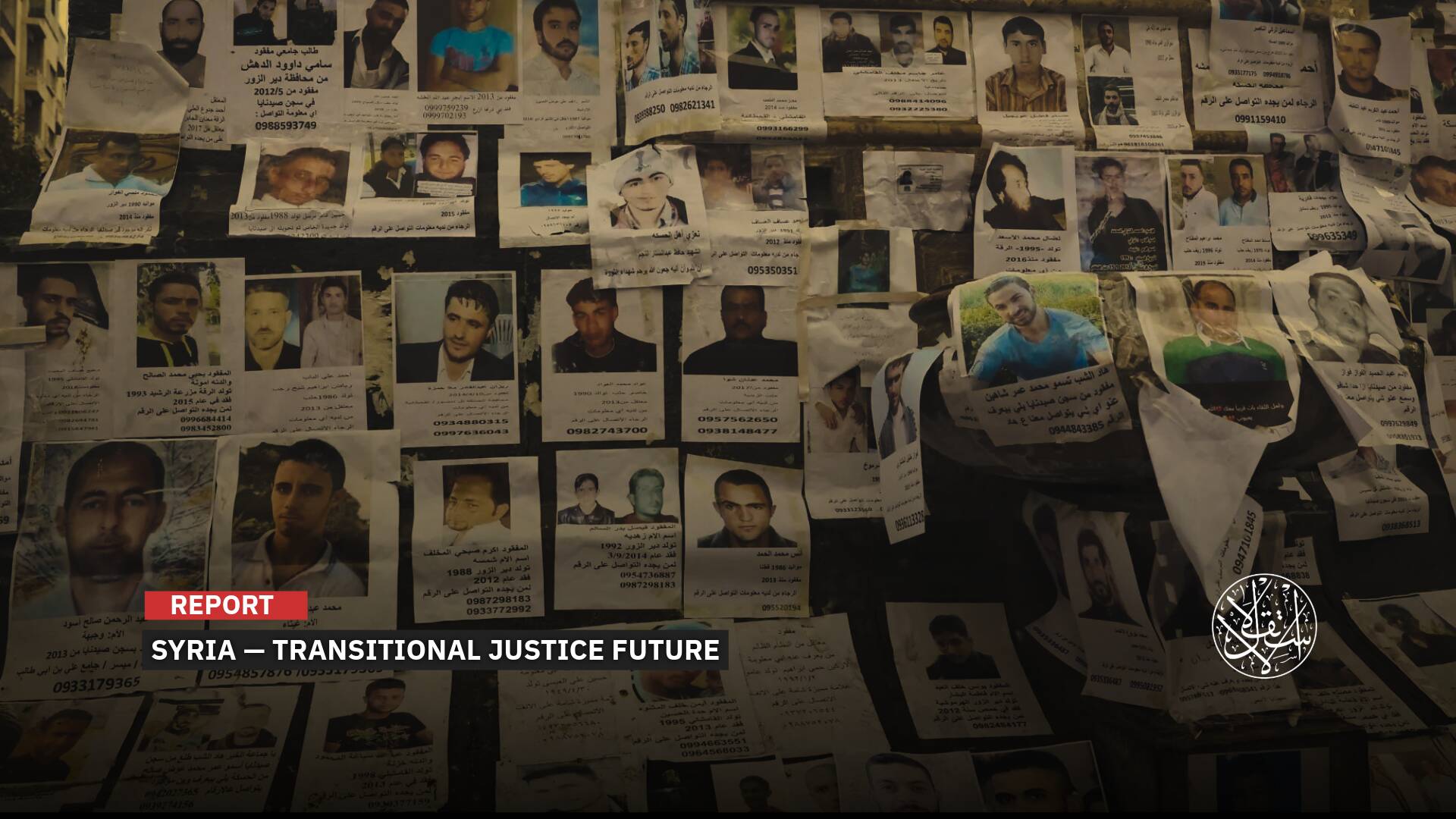In Light of the Bias Towards ‘Israel’; This Is How Facebook’s Ban on Palestinian Content Is Confronted

Repeated and continuous violations for years against Palestinian content on the internet, this is part of a war waged by social media platforms at the behest of the Israeli occupation to target the Palestinian identity.
Since the beginning of 2021, the Palestinian Journalists Support Committee has monitored 220 violations against digital content against Palestinian journalists and media professionals.
It became normal while reading any content on Facebook about Palestine, to find words related to the issue in different ways, including cutting, adding letters and symbols, or writing without dots.
“This behavior contributes significantly to covering up the Israeli violations, obscuring the narrative of the Palestinian victims, and flagrantly violating individuals' freedom of expression and publication,” the committee warned.
It called for “the necessity of stopping the pursuit of Palestinian content, and reactivating the accounts that have been disabled.”
“Facebook does not have the right in any way to restrict freedom of opinion, expression and publication, as they are inherent rights guaranteed by the Universal Declaration of Human Rights,” it stressed.
Suppression Tools
The concept of “digital Palestine” is a place where Palestinians can bypass checkpoints, talk to their families - separated from them by barbed wire - and spread their stories to sympathizers wherever they are, according to the American magazine Foreign Policy.
“The Palestinians resorted to this solution to confront the strict measures to which they are subjected to restrictions and continuous control practiced by the occupation authorities since the beginning of the new millennium,” the magazine says.
On his part, Alaa Al-Rimawi, a researcher specializing in Jerusalem and Israeli settlement affairs, believes in a statement to Al-Estiklal that “Israel seeks to block Palestinian content, because of its fear that the Palestinian narrative will reach the world, especially in light of the great influence that appeared on what is happening in the Sheikh Jarrah neighborhood during May 2021.”
Therefore, Foreign Policy notes that “the free virtual world of the Palestinians is threatened with disappearance, because of three main forces that Israel uses to achieve this.”
At the forefront of these forces, according to the magazine, is Israel's expanded police and surveillance apparatus, which is being used to track, intimidate and imprison Palestinians for their online posts.
The second force is a network of official and unofficial institutions that “Israel” uses to target pro-Palestinian expression around the world.
While the third and most surprising force was the American social media companies, which showed a willingness to silence Palestinian voices, if that means avoiding any Israeli pressure.
Despite attempts to circumvent the algorithms of social media sites by writing Palestinian content in a way that does not lead to its deletion, such as dashed words for example, there was a constant readiness by the social media to block Palestinian content, according to digital media researcher Ahmed El-Zaki.
El-Zaki also explained to Al-Estiklal that “social media sites have developed their artificial intelligence to delete any Palestinian content, whether written in explicit or implicit words.”
“If the page is deleted for violating Facebook's policies, it may not come back again, and if it returns, it enters the so-called refrigerator, by reducing interaction with page activity,” he said.
“The most recent example of this was with Al-Jazeera journalist Ahmed Mansour's Facebook page, which was followed by more than one million people, and despite that it was deleted, because it published an old dialogue of the founder of Hamas, the late Sheikh Ahmed Yassin,” El-Zaki added.
Despite the strength of the Al-Jazeera network, it did not succeed in bringing the page back again, and despite Mansour creating a new page, the interaction on it is still very weak despite its documentation, because of the Facebook refrigerator, according to El-Zaki.
Therefore, Foreign Policy believes that “the three forces formed by Israel, with the approval of the executives of the social media sites that control the global news market, were enough to block Palestinian content.”

The Power of Social Media
According to the 2016 Reuters Institute for the Study of Journalism annual report, more than half of internet users rely on social media for news.
In light of this importance, researcher Alaa Al-Rimawi stressed in a statement to Al-Estiklal “the need for Palestinian content to be present, in light of the digital space war practiced by Israel.”
This comes in light of the decline in the power of international news agencies biased towards “Israel”, and since the social media platforms assumed this position, “Israel” is seeking to zero in on the digital clash equation again, by putting pressure on social media sites to block Palestinian content.
This was reinforced, according to Al-Rimawi, that “the Palestinian's success in overcoming the digital siege fence imposed on him by “Israel” and the arrival of the Palestinian narrative to the whole world.”
In return, the occupation forces have greatly developed their capabilities to influence online, recruited bloggers and graphic designers, and built a strong presence on Facebook, Twitter and YouTube.
In times of aggression, Israeli university students organized “Hasbara Rooms” (Hasbara means “Explanation” in Hebrew), where they gather to produce pro-Israel content and counter anti-Israel bias in the international media.
But that was not enough to change world public opinion, which continued to criticize “Israel” during the 2012 and 2014 wars on the Gaza Strip, after the social media was filled with pictures of martyrs of children and compelling evidence that reflects the suffering of the Palestinians.
A Foreign Policy report on December 3, 2021 confirmed that “given the Palestinians’ embrace of digital activity and their reliance on it to advance their cause on the one hand, and the Israeli government's view of it as a security threat on the other hand; the major social media companies failed to draw a middle path between the two sides.”
The Israeli occupation government is exercising a campaign of pressure from various sides, some are legal and others are illegal and coordinated, linking criticism of Israeli policies to anti-Semitism.
The new definition links criticism of “Israel” to anti-Semitism, and if adopted by social media, would limit online criticism of Israeli policies.
As for the Palestinians, adopting the new definition would hinder discussion of Palestinian history and the Israeli occupation of the West Bank and Gaza Strip.
The origins of linking the accusation with anti-Semitism to anti-Israel or anti-Zionism go back decades, as American Professor Norman Finkelstein quotes in his book “The Holocaust Industry.”
Israeli Pressure
With the expansion of the margin of ability to publish the Palestinian narrative that revealed the crimes of the occupation, Israeli officials quickly contacted the companies responsible for these sites to combat Palestinian content and prevent its spread.
A meeting took place in September 2016, between Minister of Justice Ayelet Shaked and former Minister of Internal Security Gilad Erdan on the one hand, and a delegation from Facebook on the other hand; it was agreed to cooperate in confronting content that incites terrorism.
“Over the four months preceding the meeting, Israel submitted 158 requests regarding content posted on Facebook, and the company responded to 95% of the requests,” Shaked revealed at the time.
With the beginning of the Israeli aggression on Gaza in May 2021, Defense Minister Benny Gantz quickly met with representatives of Facebook and Instagram, to ensure that the two apps continued to fight Palestinian content.
Indeed, Instagram banned the circulation of the hashtag #Al-Aqsa during the Israeli aggression on Gaza, and closed many accounts of Palestinian activists.
In November 2021, Facebook also closed the pages of Al-Qastal and Al-Quds Square, after they covered the developments of the Jerusalem operation, which was carried out by Sheikh Fadi Abu Shkhaydam on November 21, 2021, although both pages exceeded one million followers each.
Among Facebook's violations over the past years, closure of the official page of the Al-Quds International Foundation in May 2019, and closure of the official page of the Palestinian press agency Safa in March 2018.
With the outbreak of the Jerusalem revolution in May 2021, the former Israeli Prime Minister, Benjamin Netanyahu, tried to block the means of social media, after protests were organized inside “Israel” against the aggression against Jerusalem and Gaza.
At the time, Netanyahu claimed that the reason for these protests was suspicious calls broadcast through social media, but his request was rejected due to allegations of Israeli digital power.
'Israel' Digitally
According to the Turkish AKA Institute for Digital Diplomacy 2017, “Israel” ranks ninth in the world, outperforming many developed countries.
Also, “Israel” has a small and unknown ministry to many known as the Ministry of Strategic Affairs and Information, through which the government devotes money, people, and expertise to campaigning around the world by operating a network of actors and organizations to advance its interests.
Despite all this, the Israeli narrative did not achieve the desired effect on social media sites, according to the Israeli National Security Institute, which revealed that the great effort and huge resources spent on enhancing the Israeli digital presence were not enough to keep pace with the Palestinians.
Especially since the intensity of online activity of opponents and critics of “Israel” was much greater and more powerful, according to the Israeli Institute, which called for a significant expansion of Israeli activity on the internet.
This is done by recruiting organizations and partners, especially in the Jewish and Anglican communities (a denomination within Christianity that includes the churches of Britain and other churches associated with it historically), and investing more resources in producing materials for social media.
Palestinian Narrative
On the other hand, many Palestinians, especially young people, found in social media platforms an arena for playing roles in serving issues of concern to them, without the presence of censor scissors that restrict the work of the traditional press.
On the individual level, the two brothers, Mona and Muhammad Al-Kurd, who are present in the classification of the Time magazine as the 100 most influential people globally for the year 2021; they have been involved in the journey of struggle since their early childhood, when they were 12 years old.
When they confronted the settlers who control part of their house, in May 2021, they invested their platforms on social media during the Jerusalem revolution to document the violations of the occupation in the Sheikh Jarrah neighborhood, which led to the internationalization of the issue and made it a preoccupation for world public opinion.
With the spread of the hashtag #Save_Al-Sheikh_Jarrah_neighbourhood, manifestations of support for the Palestinians expanded, to include many cultural icons, football celebrities, artists, models and other stars who have millions of followers on social media platforms.
Among those stars were British singer Dua Lipa, Academy Award-winning actress, Viola Davis, and Palestinian-American model Bella Hadid, who took pictures of her participation in a demonstration in support of the Palestinians in New York and posted them on Instagram.
In addition, Hollywood star and hero of the movie The Green Man, Mark Ruffalo called for sanctions against “Israel” for its violations of Palestinian rights.
As a result, Israeli strategist Ronnie Raymond acknowledged the victory of the Palestinian narrative, calling on the government to urgently provide $1 billion annually to support digital diplomacy.
Facebook Moves
In light of the momentum on the issue of Palestinian content, some groups within social media companies have become aware of the continued erosion of Palestinian digital rights.
In September 2021, Facebook's Oversight Board called for an independent investigation into the platform's pro-Palestinian content modification practices, to determine if it was done without bias.
The Council also expressed concern that Israeli governmental organizations, such as the Cyber Unit of the Israeli judiciary, may have imperceptibly shaped Facebook content moderation decisions.
But the best alternative to confronting the authority of social media sites over Palestinian content is to encourage Western activists to adopt the issue and publish it on a large scale, in addition to writing influential Western writers and symbols, as happened in the Sheikh Jarrah neighborhood protests, according to the digital media researcher, Ahmed El-Zaki.
At that time, social media sites will not be able to treat what they publish as a violation because of the fame of these personalities, in addition to the need to go to less severe platforms in dealing with Palestinian content, such as Twitter and Tik Tok.
But the most dangerous step to protect the digital rights of Palestinians, according to Foreign Policy, is the commitment of social media companies to observe UN General Assembly Resolution 67/19 of 2012, which recognizes the independent state of Palestine and gives it international status as a non-member observer state at the United Nations.
Such a measure would formalize a kind of Palestinian digital sovereignty, guaranteeing Palestinians limited rights of online expression and due process of law bypassing the mediation of Israeli security officials.
In addition, it is necessary to expand the circle of spreading the Palestinian narrative globally and adopt it on the Arab and Islamic levels, according to researcher Alaa Al-Rimawi.
According to him, what may constitute additional pressure on social media sites if they decide to respond to Israeli pressure by blocking Palestinian content.
In sum, this means that any future crises will be able for Palestinians to feel even a little relief, according to Foreign Policy, because they know that their digital voice, the key to their safety and the only effective treatment, will not be entirely at the mercy of a hostile foreign power.
Sources
- How to End Israel’s Digital Occupation
- Israel/Palestine: Facebook Censors Discussion of Rights Issues
- When the West sacrifices its slogans of freedom in defense of Israel [Arabic]
- Banned from the internet: An Israeli Occupation of the Palestinian Digital Space [Arabic]
- An Israeli request from Facebook and Tik Tok regarding the situation in occupied Palestine, what is it? [Arabic]
- The digital battle during the gift of occupied Jerusalem [Arabic]







